- Home
- Barry Eisler
Fault Line Page 2
Fault Line Read online
Page 2
“No, listen. He can’t afford our fees. But if we incorporate him, take a piece of the company—”
“Do you know how hard it is to get the partnership committee to go for that kind of speculative crap?”
“Sure, but they take your recommendations, don’t they?”
This was a gambit Alex had learned in years of negotiating for clients. When the other side pleaded that it wasn’t their decision, that they had to check with the board or the management committee or Aunt Bertha or whoever, you engaged their ego, and then their desire to be consistent.
Osborne was too experienced to fall for it. “Not always, no.”
“Well, this time they should. This technology has promise. I’ve examined it personally, and you know I know better than most. I’ll do all the work myself. Not instead of everything I’m already doing. In addition to it.”
“Come on, Alex, you’re already on track to bill over three thousand hours this year. You can’t—”
“Yes I can. You know I can. So what we’re talking about is a percentage of something for the firm—something that could be big—in exchange for effectively no investment. The partnership committee won’t listen to you when you propose that?”
Not if, when. Osborne didn’t respond, and Alex hoped he hadn’t pushed it too hard. Osborne was probably wondering, Why is he willing to sacrifice so much for something so speculative? Is this thing going to be bigger than he’s letting on?
Alex tried again. “The committee listens to you, right?”
Osborne smiled a little, maybe in grudging admiration of how well Alex had played his hand. “Sometimes,” he said.
“Then you’ll recommend it?”
Osborne rubbed his chin and looked at Alex as though he was concerned for nothing but Alex’s welfare. “If you really want me to. But you know, Alex, this is the first matter you’ve ever originated”—First one you’ve ever let me originate, you mean—“and if it doesn’t pan out, you’re not going to look good. It’ll show bad judgment.”
Bad judgment. At Sullivan, Greenwald it was the ultimate, all-purpose opprobrium. Anything that went wrong, even if it wasn’t the attorney’s fault, could be attributed to bad judgment. Because if the attorney had good judgment, he would have seen it coming no matter what. The bad thing wouldn’t have happened on his watch.
Alex didn’t respond, and Osborne went on. “All I’m saying is, for a risk like this, you want a margin for error, a cushion to fall back on.”
Alex was disgusted with the way Osborne presented all this as though he were Alex’s best friend. He knew he was supposed to say, You’re right, David. You take the origination. Thanks for protecting me, man. You’re the best.
Instead he said, “I thought you were my cushion.”
Osborne blinked. “Well, I am.”
Alex shrugged as though that decided it. “I couldn’t ask for better protection than that.”
Osborne made a sound, half laugh, half grunt.
Alex took a step toward the door. “I’ll fill out the new client form and a new matter form, run a conflicts check.”
This was it. If Osborne was going to try to overrule him, he’d have to say so now. If he didn’t, every day that passed would create new facts on the ground that would be harder and harder for Osborne to get around.
“If we’re not taking any fees,” Osborne said, “I still have to take this to the committee.”
“I know. But I feel confident they’ll listen to you.” Alex looked at Osborne squarely. “This is important to me, David.”
Unspoken, but clearly understood, was, So important that if you screw me, I’ll be working at Weil, Gotshal next week, and you can find someone else to make you sound as smart with your clients as I do.
A beat went by. Osborne said, “I don’t want you working on this by yourself.”
Alex hadn’t been expecting that and didn’t know what it meant. Had he just won? Had Osborne caved? “What do you mean?” he asked.
Osborne snorted. “Come on, hotshot. How are you going to ride this to where you want it to take you if you don’t have any associates working under you?”
Alex hadn’t thought about that. Mostly he worked alone. He liked it that way.
“Look, it’s a little early—”
“Also,” Osborne said, “how are we going to justify a big piece of this guy’s company if we’ve only got one lawyer on it? We want him to know he’s being treated right.”
Alex didn’t know whether to laugh or what. Osborne was practically telling him to pad his time. But if this was what it took for Osborne to feel he’d won a little victory in the midst of the way Alex had played him, fine.
“I see what you mean,” Alex said.
“Use the Arab girl, the good-looking one. What’s her name?”
Alex felt a little color creep into his cheeks and hoped Osborne didn’t notice. “Sarah. Sarah Hosseini. She’s not Arab. She’s Iranian. Persian.”
“Whatever.”
“Why her?”
“You’ve worked with her before, right?”
“Once or twice.”
Osborne looked at him. “Three times, actually.”
Christ, Osborne was no tech whiz, but when it came to who was billing for what, he was all over it.
Alex scratched his cheek, hoping the gesture seemed nonchalant. “Yeah, I guess so.”
“You said in your review she’s ‘unusually confident and capable for a first-year.’”
The truth was, the description was an understatement. “That sounds right.”
“She’s smart?”
Alex shrugged. “She has a degree in information security and forensics from Caltech.” He knew Osborne might sense a mild put-down in this, but was annoyed enough not to care.
“Well, she’s not busy enough. Use her. Build a team. Do you have a problem with that?”
Why was he pushing it this way? Would the extra lawyer give Osborne a greater claim, maybe to supervise the work, start taking it over, something like that?
Or was he just having fun, teasing Alex, forcing him to work with Sarah because he knew—
“No,” Alex said, cutting off the thought. “There’s no problem.”
Osborne had pitched the partnership committee as promised about taking on Hilzoy, and the committee had okayed the arrangement. Osborne told him there had been opposition, but Alex suspected that was bullshit. For all he knew, Osborne might not have needed to pitch it at all. Maybe the committee loved this kind of shit—sure, get the associate to bill even more hours, while we keep the profits if his work turns into anything. Maybe Osborne had just positioned it as some Herculean task so Alex would feel in his debt afterward.
It didn’t matter. Alex didn’t owe anybody. He’d gotten this far by himself. His parents were gone, his sister was gone, his sole remaining family was his prick of an older brother, Ben, who had caused everything and then run away to the army after their father had … after he had died. Alex hadn’t talked to Ben since their mother’s funeral, eight years earlier. Even then, with nothing left but the two of them, Ben wouldn’t say where he was or what he was doing. He just showed up for the ceremony and left, leaving all the details to Alex, just as he’d left Alex alone to care for their mother during the last year and a half of her life. After he’d finished the probate—again, all by himself—Alex had sent Ben an e-mail explaining his share of the estate, which was pretty big, as their father had done well and there were only the two beneficiaries. Ben hadn’t even thanked him, just told him to send the paperwork to an address at Fort Bragg, North Carolina, saying he’d sign it when he could. For all Alex knew, right now Ben was in Iraq or Afghanistan. Sometimes Alex wondered whether he was even still alive. He didn’t care. Either way he was never going to talk to him again.
Goddamn Hilzoy. Alex hated that he needed him, but he did. Because if Obsidian was even half as successful as Alex expected it to be, the seed money was going to be followed by a second, third, maybe a fourth round of financin
g. After the acquisition or the IPO, the firm’s share would be worth a fortune. And Hilzoy would never forget who got him there. All the legal work afterward, and all the billing for it, would be Alex’s and his alone. His name would be indelibly linked with Obsidian, he would be the lawyer who represented the hottest company of the year, maybe the decade, and then the David Osbornes of the world would be begging for the crumbs from his table.
Assuming Hilzoy hadn’t already blown it for them. Did he understand just how busy these VCs were, how many proposals were pitched at them every single day, how few they actually followed up on? You get one shot for these people’s attention, Alex had told him, just one shot.
If Hilzoy screwed this up, Alex was going to kill him.
3 A SIMPLE UNDERSTANDING
Ben Treven sat motionless at the edge of a wooden chair at the Hotel Park Istanbul, watching the rainy afternoon street two stories below through tattered gauze curtains. The room was small and spartan, but its size and furnishings couldn’t have mattered less to him. The window was open a few inches, and from time to time the interior quiet was broken by the sounds of the city without: car tires thumping over the antique cobblestone streets and splashing through potholes; the practiced touts of rug merchants calling out to passing tourists from in front of their small shops; the haunting notes of the muezzin, entreating the faithful to prayer five times daily between dawn and dusk.
In addition to letting in the sounds of the street, the open window kept the room cold. When the moment arrived, he would need to move quickly, and he was already wearing deerskin gloves, a wool cap, and a fleece-lined, waterproof jacket. His hair was naturally blond, but the false beard he wore was black. With the hat on, no one would notice the discrepancy.
The warm clothing would be useful in the rain and against the December chill, of course, but that was only part of it. The gloves prevented prints. The hat obscured his features. The jacket concealed a suppressed Glock 17 in a cross-draw holster on his left side.
On the coffee table next to him was a backpack containing clothes, two sandwiches, a bottle of water, a first-aid kit, ammunition, false travel papers, and a few other essentials. Other than the backpack, there was no trace of the room’s occupant, nor would there be when he was gone.
He was there to kill two Iranian nuclear scientists, Omid Jafari and Ali Kazemi. Ben knew a lot about the men: their real names, the names they were traveling under, the details of their itineraries. He knew they were in Istanbul for a meeting with a Russian counterpart. He knew they were staying at the Sultanahmet Four Seasons, which is why he had taken this room at the Park, directly across the street. He had copies of their passport photos and had recognized them immediately when they arrived from the airport in one of the hotel’s BMW limousines three days earlier. He knew the two men who accompanied them at all times were with VAVAK, Iran’s feared secret service, and that the VAVAK people, in addition to being well trained, would be motivated. If one of the scientists were kidnapped or assassinated, or if one of them defected, as Ali Reza Asgari, the Iranian general and former deputy defense minister, had done not so long before, the man who let it happen could expect to be executed.
He knew considerably less about the Russian: not much more than a real name, Rolan Vasilyev—which he probably wasn’t traveling under anyway—and that he was coming to Istanbul to meet the Iranians. Washington had been pressuring Moscow about Russian nuclear assistance to Tehran, and presumably the Kremlin had decided it was too risky to bring the Iranians to Russia, even under false names. Istanbul was a good neutral corner: about midway geographically, with good air links, and security services focused more on ethnic Kurds than on Russians or Iranians.
Each morning since they had arrived, the Iranians and their VAVAK minders had gotten into one of the hotel limousines and returned after dark. Ben figured these trips were for meetings with Vasilyev and would have liked to follow them to learn more, but the likely costs outweighed the benefits. Alone in a car or on a motor scooter, he would be relatively easy to spot. Even if he weren’t spotted, catching them in a venue that enabled him to do the job and depart without trouble would require an unrealistic amount of luck. He might have tried taking them as they arrived at or departed from the hotel, but the front and interior of the Four Seasons were quietly replete with cameras, doormen, and security personnel. It just wasn’t a good place for a hit, which was part of the reason they had chosen it in the first place.
It didn’t matter, though. His gut told him something would open up. After all, the Iranians were in town for seven days, and what did that mean? Probably that they expected to be done with their work in four, or maybe five. Country and culture were irrelevant: when the government or the corporation or anyone else was footing the bill, bureaucrats and other worker bees could always be expected to overestimate the time they would need for meetings. Especially when the meetings required their presence in a city as enticing as Istanbul, and at a hotel as fine as the Four Seasons.
In fact, the choice of hotel increased Ben’s confidence about what was coming next. Because if the Iranians could persuade the bean counters to spring for the Four Seasons, cost was obviously not a consideration. If cost wasn’t a consideration, they could have stayed at any hotel in the city—the Pera Palas, the Ritz-Carlton, even the second Four Seasons, recently opened on the Bosporus. Ben had checked with all of them, and they all had rooms available. They all offered more or less the same level of luxury and security. The question, then, was, why this hotel?
The answer, Ben thought, was location. All the other luxury properties were in Beyoglu, the newer part of the city, north of the Golden Horn. Only the Sultanahmet Four Seasons was a five-minute walk from the city’s most storied attractions: the Blue Mosque, Hagia Sophia, Topkapi Palace, the Grand Bazaar. And if Ben was right about location being the deciding factor, he was confident the Iranians would take at least a day, and probably more, to see those walking-distance sights. When they set out from the hotel on foot, Ben could get behind them. From there, an opportunity would present itself. All he had to do was wait.
Which was fine. Waiting didn’t bother him. He liked to wait, in fact, liked the simplicity of it. Waiting was the least complicated part of an uncomplicated job.
Periodically, he received orders. The orders were always short and direct, and he had extremely wide latitude in determining how to carry them out. He could ask for whatever equipment he needed, and the equipment would promptly turn up in a dead drop as though by magic. There was no questioning, no red tape, no oversight.
The only real constraint this time was that Vasilyev was off-limits. During the early years of the Cold War, trying to remove the other side’s pieces from the board was considered just another part of the game. Eventually, like rival mafia families, everyone had figured out the bloodshed was more expensive than it was worth, and a kind of shadowy détente had settled in. Now, no one wanted to be responsible for breaking the truce, for a return to those bad old bloody days.
He tried not to be irritated by the restrictions. After all, it wasn’t like the Russians were matching Uncle Sam’s restraint. They had killed that guy Victor Litvinenko in London with polonium. And there were all those dead journalists, too—Anna Politkovskaya, Paul Klebnikov, too many to keep up with. Ben thought he could make a pretty good argument that Ivan was getting more aggressive precisely because of Uncle Sam’s overzealous devotion to the rules, but that kind of shit was above his pay grade and it wasn’t as though anyone would listen to him anyway. But if he could, he would have asked someone what had happened to “You’re either with us or you’re with the terrorists.” He supposed it had been just another empty slogan from another lying politician.
They were all liars, actually. The left was naïve, thinking you could follow the niceties and still fight effectively against the kind of fanatics America was up against. And the right was hypocritical, thinking you could take off the gloves and still occupy the moral high ground.
&nb
sp; Yeah, the left couldn’t understand the nature of the fight; the right couldn’t accept its true consequences. But Ben didn’t care about the niceties, he didn’t care about the moral high ground, he cared about winning. And the way you won was by being the hardest, dirtiest, deadliest motherfucker the enemy could ever have imagined in his worst nightmare. Christ, what good were rules if they made you lose the fight? What all the armchair analysts couldn’t get their minds around was that when your tribe is attacked, you do what you have to do to win. You win by any means necessary. Later there could be a victor’s justice, fine, but first there had to be a victory.
The thing was, most Americans wanted nothing more than to be safe. Maybe it hadn’t always been that way, in fact he suspected things had once been different, but these days America had become a nation of sheep. Which to him was a pretty sorry way to live, a way that represented everything he’d joined the army to get away from; but that was American culture these days, and someone had to keep the sheep safe from the wolves. He understood at some level that the bullshit restrictions and the second-guessing just came with the territory. Still, it was galling to be put in a position where he was more afraid of CNN than he was of al Qaeda.
A BMW 750L pulled up in front of the Four Seasons and a doorman with an umbrella moved forward to open the door. Ben tensed, but no, it was an Asian couple, not the Iranians. He settled back onto the chair and resumed his waiting.
No one had told him where the intel behind this op had come from, of course. But from the quality of the information on the Iranians, and its paucity regarding the Russian, Ben suspected an Iranian mole—possibly in the country’s nuclear program, more probably in the security services. An asset in the nuclear program would have known the scientists’ names and itineraries. He might even have known about the VAVAK minders. But only someone in charge of security would also have access to the false names and papers under which the men would be traveling, and to their passport photos. Also, understanding the likely fate to which he was condemning them, someone in the nuclear program would have found it harder to give up the scientists. After all, they would have been colleagues, men another scientist would know personally. Betraying your country is easier to rationalize than betraying a friend.

 All the Devils
All the Devils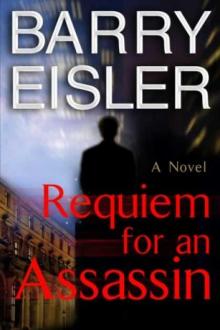 Requiem for an Assassin
Requiem for an Assassin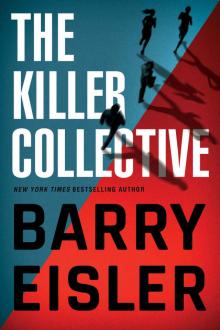 The Killer Collective
The Killer Collective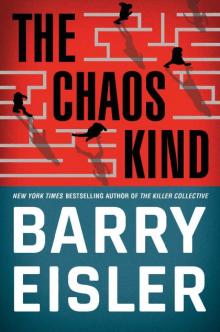 The Chaos Kind
The Chaos Kind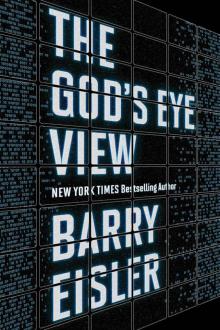 The God's Eye View
The God's Eye View Paris is a Bitch
Paris is a Bitch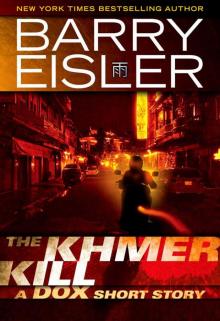 The Khmer Kill: A Dox Short Story (Kindle Single)
The Khmer Kill: A Dox Short Story (Kindle Single)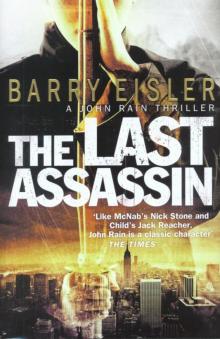 The Last Assassin
The Last Assassin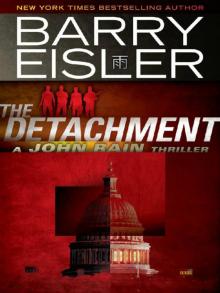 The Detachment
The Detachment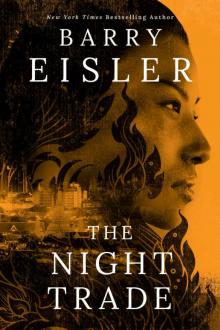 The Night Trade (A Livia Lone Novel Book 2)
The Night Trade (A Livia Lone Novel Book 2)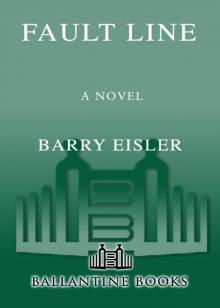 Fault Line
Fault Line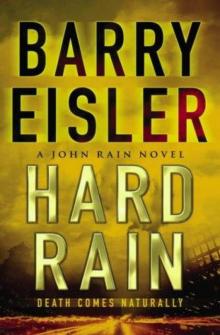 Hard Rain
Hard Rain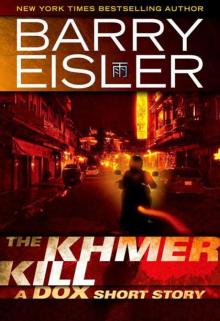 The Khmer Kill_A Dox Short Story
The Khmer Kill_A Dox Short Story London Twist: A Delilah Novella
London Twist: A Delilah Novella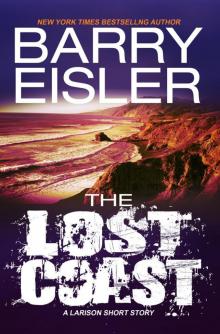 The Lost Coast
The Lost Coast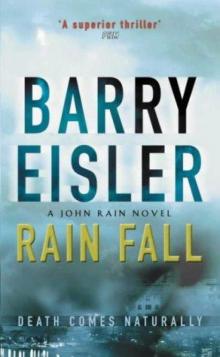 Rain Fall
Rain Fall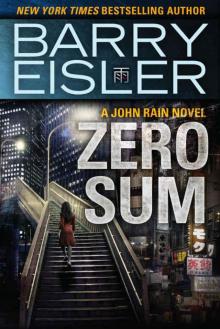 Zero Sum
Zero Sum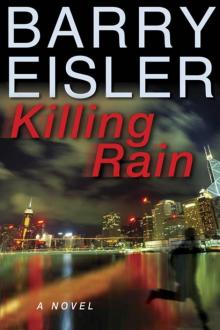 Killing Rain
Killing Rain John Rain 08: Graveyard of Memories
John Rain 08: Graveyard of Memories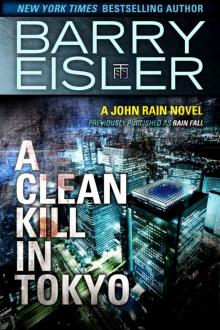 A Clean Kill in Tokyo (previously published as Rain Fall)
A Clean Kill in Tokyo (previously published as Rain Fall) Inside Out: A novel
Inside Out: A novel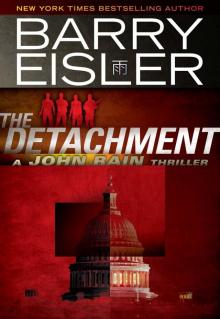 John Rain 07 - The Detachment
John Rain 07 - The Detachment Graveyard of Memories
Graveyard of Memories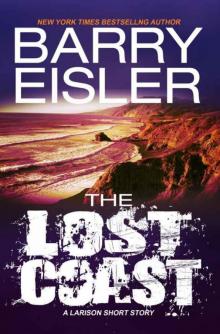 The Lost Coast -- A Larison Short Story
The Lost Coast -- A Larison Short Story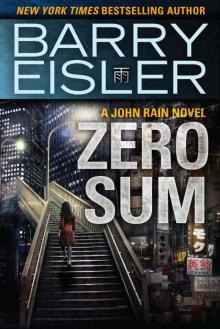 Zero Sum (A John Rain Novel)
Zero Sum (A John Rain Novel)